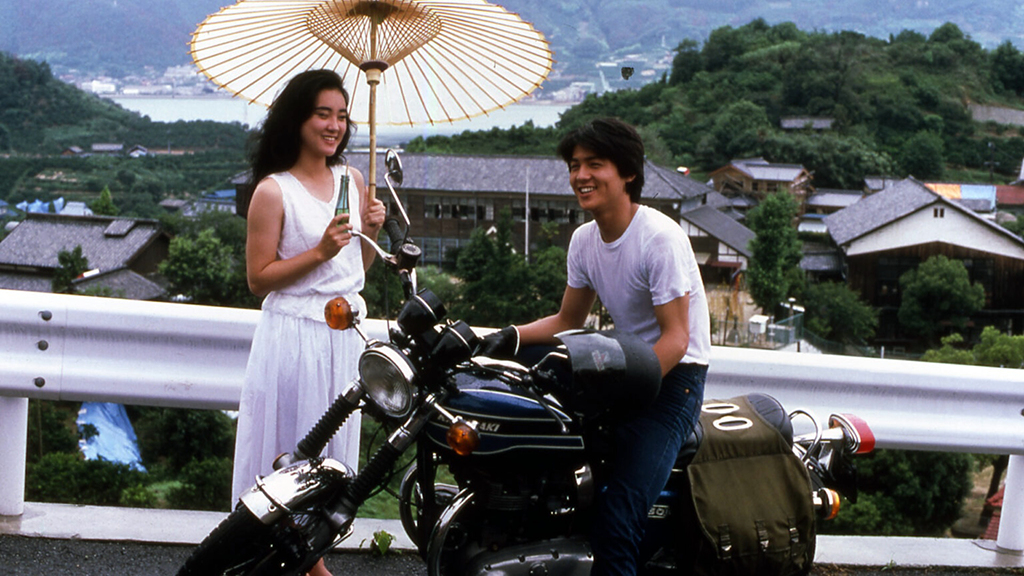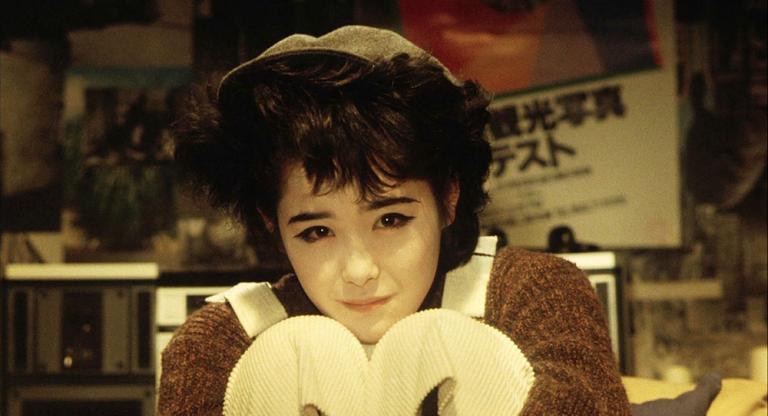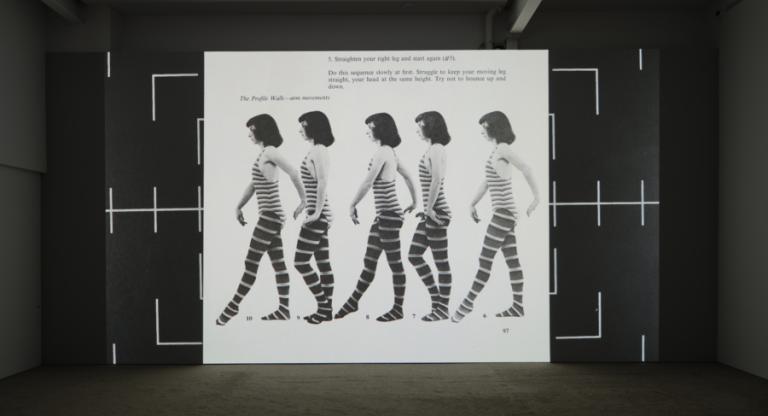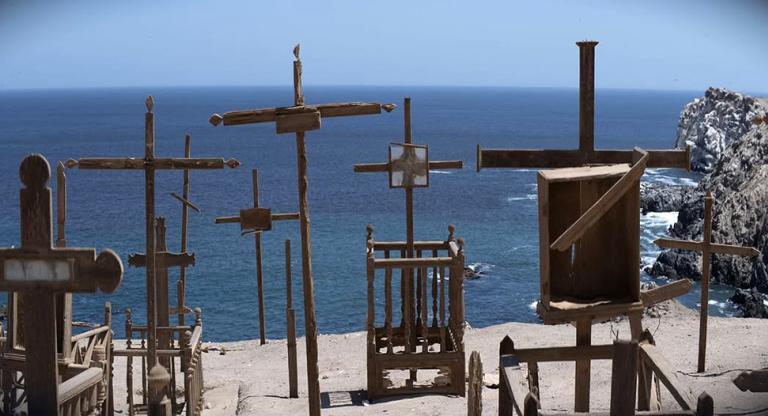Nobuhiko Obayashi’s career is both prolific and varied. His commitment to experimenting with form carried through his entire body of work, right up until his last film, Labyrinth of Cinema (2019), which he completed while undergoing cancer treatment shortly before his death. House (1977), of course, has become a staple of late-night film repertory programming, and his Anti-War Trilogy has recently enjoyed more attention from writers and film programmers, most recently at BAM’s 2022 retrospective. But his lesser shown 1980s work is equally fun and inventive, with a real investment in Japanese youth culture. He publicly attributes his interest in this topic to his teenage daughter Chigumi, who contributed to the pre-production process of his most famous film, the aforementioned House.
One of the gems of his ‘80s filmography is the poppy teen melodrama His Motorbike, Her Island (1986), a loving homage to and parody of American biker culture, with hints of Bruce Springsteen and Kenneth Anger sprinkled throughout. In the latter half of the 20th century the interplay between Japanese and American pop culture was particularly well-mapped, with the Group Sounds music movement in Japan igniting a flurry of cover bands that re-styled English-language classics for Japanese audiences. In 1985, one year before His Motorbike was released, Springsteen even traveled to Kyoto for an arena performance. Perhaps uncoincidentally, one of the pivotal plot points occurs when protagonist Ko Hashimoto receives a note written on the back of a photo-essay titled “American Road in New Jersey.” With his beloved Kawasaki and Levi jeans, Ko harkens back to classic icons of Americana, like James Dean in Rebel Without a Cause ( 1955) or Marlon Brando in On the Waterfront (1954). But Obayashi’s playful experimentation with freeze-frame, alternating black-and-white and color photography, and moody voice-overs seem right out of a French New Wave film like Pierrot le Fou (1965).
His Motorbike feels like a Hollywood melodrama filtered through the lens of Japanese pop culture. It borrows iconography from both: the fetishized images of the bike and The Road melt into scenes of a traditional tea ceremony and dance for deceased relatives. Ko’s love interest Fuyumi serves as the marriage of these two forces; she is preternaturally gifted at biking and loves visiting him in Tokyo, but she also lives a relatively placid life in the countryside. When he chooses Fuyumi over ex-girlfriend Miyoko, Ko must duel Miyoko’s brother as payback. They approach each other in the dark one night like medieval jousters, but they’ve swapped horses and lances for bikes and lead pipes.
Where His Motorbike divulges from the traditional romantic coming-of-age story is in its careful subversion of gender roles. As Fuyumi becomes a biking superstar, Ko begins to view her as his masculine rival. When she insists upon hitting the road in the middle of the night he pleads with her to stay. But like a Scorpio Rising extra, she is just as thrilled by the revving of an engine and the risk of death as she is by the promise of romantic love. Though Obayashi subverts the biker genre again because she doesn’t meet a tragic fate. Ko and Fuyumi get to live happily ever after, posing self-consciously before the camera, each in a pair of perfectly pressed blue Levis, like outtakes from the cover of Born in the U.S.A.
His Motorbike, Her Island screens this evening, February 13, at Japan Society as part of the series “Obayashi ’80s: The Onomichi Trilogy & Kadokawa Years.”




